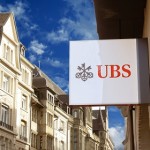Switzerland has the image of a placid and rather dull place. And Swiss banking can appear even duller. For decades the industry has had a reputation for the utmost of discretion and conservatism, although the bank secrecy protocol ended in late 2018, making it more difficult to hide undisclosed wealth. At the thought of Swiss banking, some people may think of “The Gnomes of Zürich,” a term of condescension for Swiss bankers first used by British Labour Party politician Harold Wilson in 1956. The expression conjures up images of little creatures trading currencies, financial instruments, gold, and other commodities at nearly the speed of light, well-secreted in-country.
But something very un-Swiss has happened in recent weeks. Swiss bankers have projected themselves as venturesome players in a global theater of high risk, and they have incurred major losses. Unlike Starbucks bankers, the young millennials with tall salted toffee macadamia lattes with extra foam who are easily offended, these Swiss bankers are experienced financiers who should be able to read balance sheets, structure complex transactions, and arbitrage inefficiencies in world markets – while astride global trade, capital, and electron flows from an elegant headquarters in Zürich.
So, what went wrong? Credit Suisse Group AG of Zürich, Switzerland knows the answer. It is the second largest bank in Switzerland with total assets at year-end or nearly $900 billion, or about three-fourths the size of the U.S. investment bank, Goldman Sachs. On April 6, Credit Suisse reported a staggering charge, now estimated $5.5 billion[1] due to the insolvency of Archegos Capital Management of New York, a leveraged hedge fund, which could not meet margin calls in late March. Credit Suisse had incurred exposure of more than $20 billion[2], funding positions of Archegos in corporate stocks, and it did not have real time systems in place to value fluctuating securities.
UBS Group AG, the largest bank in Switzerland with year-end assets of $1.2 trillion also knows the answer – on April 27 it announced a loss of nearly $800 million due to exposure to Archegos. Morgan Stanley, the U.S. investment bank took a hit of over $900 million, and Nomura Holdings of Japan reported a charge of $2 billion. [3]
Besides the Archegos disaster, Credit Suisse had previously funded a company known as Greensill Capital, a London-based enterprise in the business of supply chain finance. This is an exotic term for time-honored trade finance, conducted since the clay tablets of the Babylonians, and in modern form since the Middle Ages and the Renaissance, now enhanced with present-day financial architecture involving credit insurance and securitization.
In spite of trade finance having these historical antecedents and current practices, Greensill positioned itself as a cutting edge “fintech” innovator. Typically, Greensill would pay suppliers of a client (the buyer) discounted proceeds at shipment, and then collect from the client at maturity the face value of the invoice. The obligations were insured by Tokio Marine of Japan and then pooled into securities and sold off to investors. When the insurers[4] became concerned about credit quality and a concentration of Greenhill’s exposure in the steel industry, they declined to renew their insurance, which lapsed on March 1.[5]
This action in turn triggered Credit Suisse to cut off Greensill – which filed for Chapter 11 bankruptcy protection in late March. Former U.K. Prime Minister David Cameron[6] was hired by Greensill as an adviser in 2018 and was engaged in lobbying for financial support, and the U.K. government is looking into this matter. Credit Suisse advises that it may be able to contain the losses in its Greensill supply chain financing funds to $1.5 billion. [7]
Credit Suisse has other travails too. In December, it rejected allegations after indictment by the office of the Swiss attorney general for money laundering[8] of drug proceeds, after an investigation said to last twelve years.
The annual meeting of shareholders of Credit Suisse was Friday, April 30. A key board member for risk management was not reelected, following resignations in senior management as well.
Shake-ups and shareholder pressure like this are uncommon and very un-Swiss. In the aftermath of the Greensill and Archegos fiascos, Swiss bankers have lost their gray cachet. Doubtless there will be calls for more regulation of financial services in Europe and in the U.S., where both Swiss banks have a New York headquarters. This could entail the need for more management oversight, and for real time systems to value securities and to detect undue concentrations of risk. But in spite of mandated improvements, there will always be the human factor: as Gordon Gekko, played by Michael Douglas in the film Wall Street, stated succinctly, “Greed is good.”
Frank Schell is a business strategy consultant and former senior vice president of the First National Bank of Chicago. He was a Lecturer at the Harris School of Public Policy, University of Chicago and is a contributor of opinion pieces to various journals.
This article was exclusively written for Gateway House: Indian Council on Global Relations. You can read more exclusive content here.
For interview requests with the author, or for permission to republish, please contact outreach@gatewayhouse.in
© Copyright 2021 Gateway House: Indian Council on Global Relations. All rights reserved. Any unauthorized copying or reproduction is strictly prohibited.
References:
[1] https://www.wsj.com/articles/credit-suisse-investors-target-board-over-archegos-greensill-failures-11619433631
[2] https://www.wsj.com/articles/credit-suisses-exposure-to-archegos-investments-grew-to-more-than-20-billion-11619045988
[3] https://www.reuters.com/business/finance/ubs-q1-profit-up-14-switzerlands-no-1-bank-unveils-archegos-charge-2021-04-27/
[4] https://www.insurancebusinessmag.com/us/news/breaking-news/credit-suisse-faces-fallout-from-greensill-debacle-251249.aspx
[5] https://www.insurancebusinessmag.com/us/business-news/greensills-fall-from-grace-triggered-by-insurer-248281.aspx
[6] https://www.wsj.com/articles/u-k-to-examine-former-prime-minister-david-camerons-greensill-role-11618253879
[7] https://www.bloomberg.com/news/articles/2021-04-06/credit-suisse-may-let-fund-clients-take-hit-on-greensill-losses
[8] https://www.reuters.com/article/credit-suisse-gp-bulgaria/switzerland-charges-credit-suisse-in-bulgarian-money-laundering-probe-idINL8N2IX3RZ


